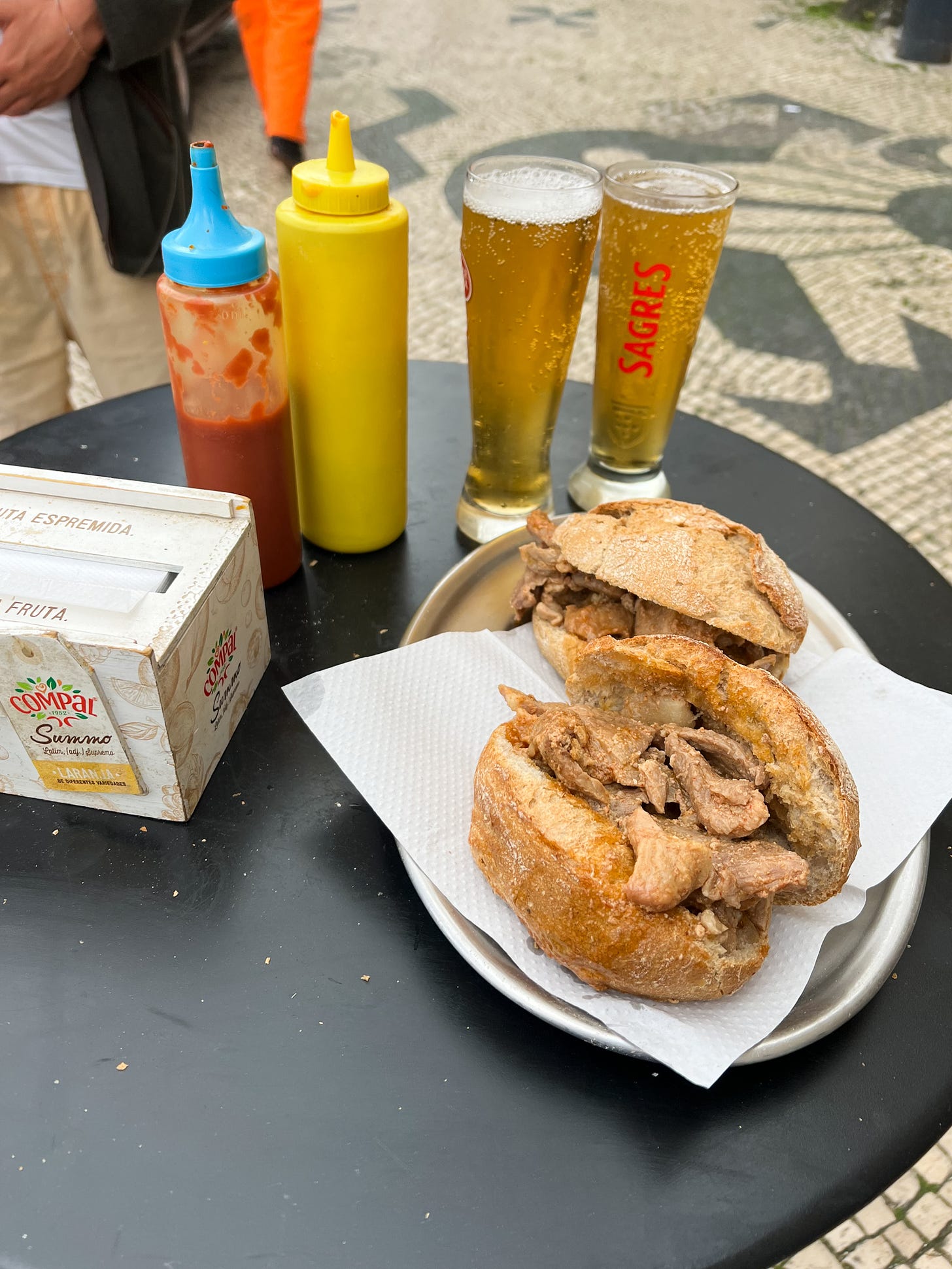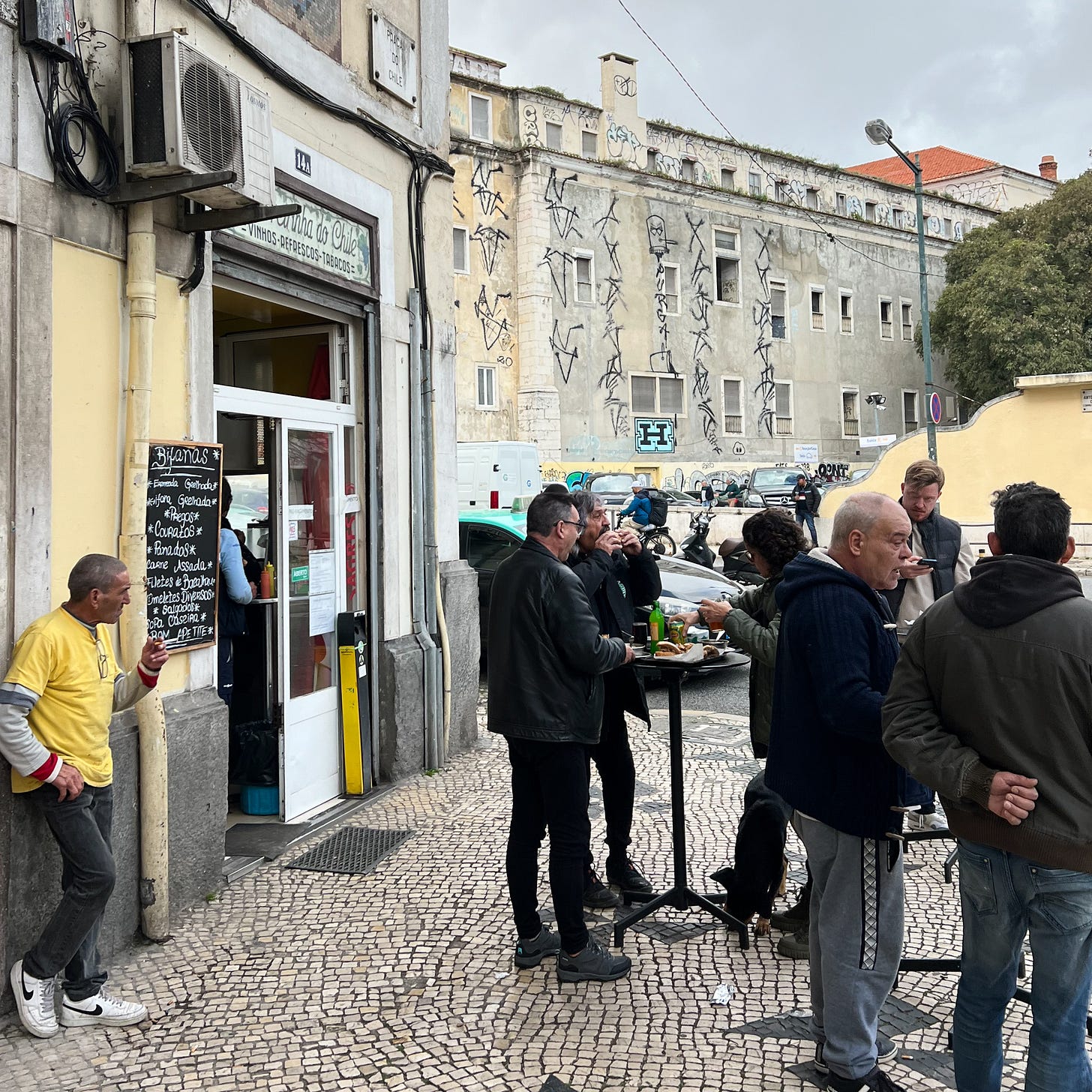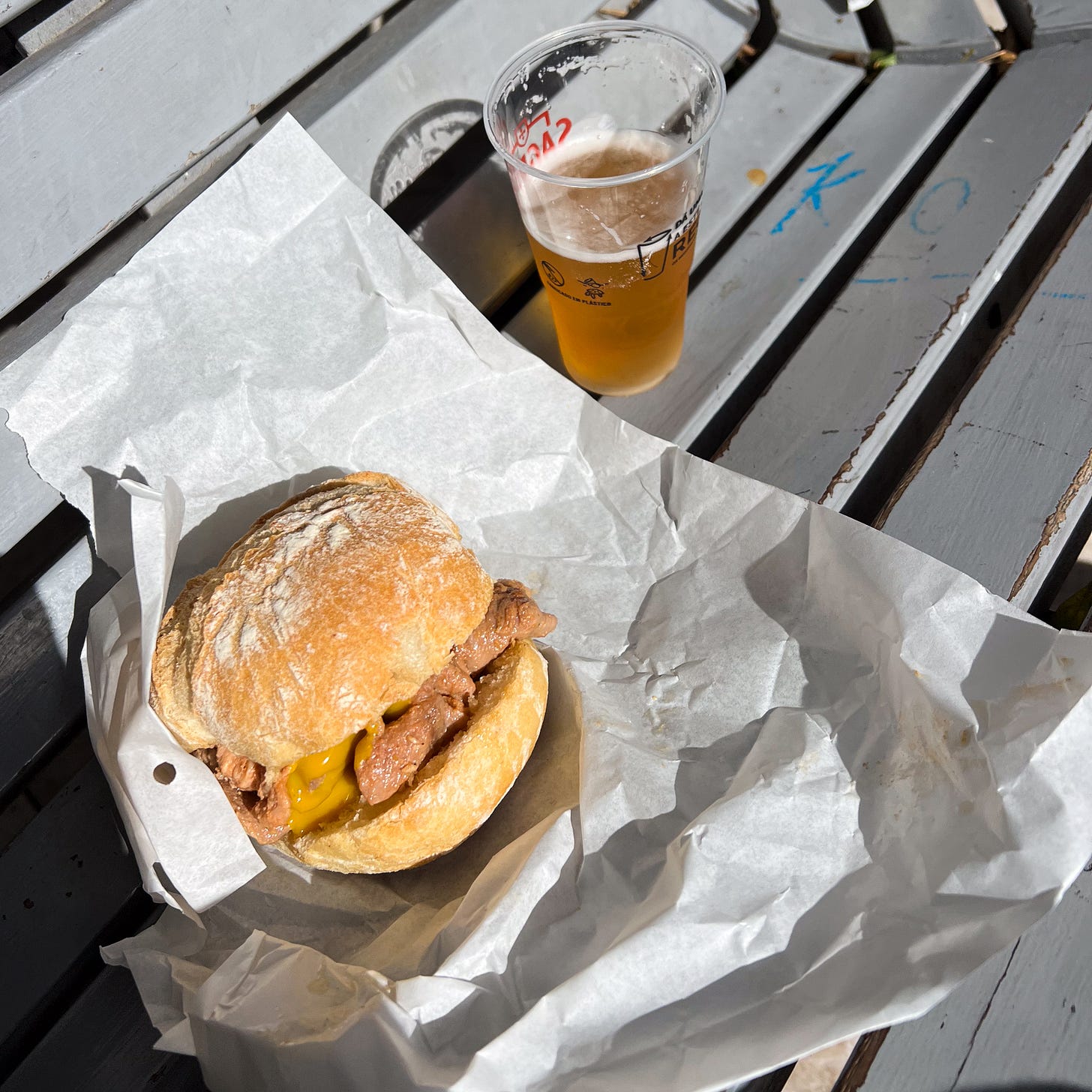There are a lot of working-class meals here in Portugal, the more famous ones being monstrosities such as the Francesinha and other variations of meat in bread, always best accompanied by an ice-cold cerveja. But one heavyweight belt contender reigns supreme among all the braised meat-in-bread creations. The Bifana is a love song to everything sacred in these lands, a food built for fuel and untouched by the hype of so-called superfoods that amount to little more than scraps under your shoe.
Speaking of superfoods, if you asked anyone who'd just done a hard day's graft down at the dockyards what keeps them fuelled, or what powers up those superhuman feats after hammering a nail into wood or digging a hole through the dirt, I would bet my house on one of the following answers: Bifana, Prego, or any meaty variation of 'Sandes de X.'
The Bifana itself is thinly sliced pork simmering all day in a cauldron of wine, garlic, thyme, paprika, and whatever secret blend of herbs and spices the local alchemist running the joint swears by. The longer the simmer, the richer the gravy. Arrive in the afternoon, and you'll find yourself with the more tender, fattier cuts that melt into your roll. Come early in the morning, and you get first dibs on the best cuts, kissed with fresh herbs and spices as they caress your bread.
Depending on your style, an imperial or a caneca of beer is always necessary to wash it down before you slump back to the sofa.
The Bifana is the subject of fierce debate. Some claim the north does it best, while Lisbon locals argue otherwise. No matter where you stand, you'll always find a crowd at the top spots—tourists lining up at the iconic joints, tour guides parking at the bar for a quick lunch break, and a bunch of raging locals drowning their sorrows after a Benfica loss to Barcelona, all ready to chow down on their misery until next season.
Regardless of where you get it, the sandwich is iconic, simple, and held close to the chest of both locals and visitors. Humble in nature, much like the Portuguese themselves, the Bifana still carries echoes of an empire past, feeding the backs of workers and wanderers alike.
For me, it was one of the first love letters Portugal wrote to me. Cheap, cheerful, and a revelation. It wasn’t just a sandwich; it was a moment of belonging, a taste of something deeply woven into the rhythm of the city.
The Bifana wasn’t trying to impress. It simply existed, honest and unfussy, much like the people who made it. cheerful, tender, and juicy. Famously, the late Anthony Bourdain stopped to taste one. In my opinion, his chosen spot has become a victim of its own fame, transformed from a hidden gem into a tourist-fueled machine where the magic of a simple, working-class sandwich gets diluted by hype and long lines of people chasing an experience that once was.
But take a step beyond the castle, past the Avenida, and into a neighborhood bustling with pride, where the prices stay true and the taste even truer than the pastel de nata you choked down at the airport. There, you'll find a sandwich fit for a king at the price of a pauper. The everyman’s sandwich, where simplicity and sophistication meet in one bite. Mustard or piri-piri if you so choose.
Coincidentally, it was the sandwich that taught me to speak Portuguese. For months, all I could do was order copious amounts of these goddamn things, then figure out how to order more alongside a beer. My first Portuguese friend, I’d say. The Bifana didn’t just have the nation’s back. It had mine too.
So when you find yourself half-cut on a Friday afternoon, looking for something to caress the soul and carry you home, walk past the golden arches and gather around the tiny Bifana Cervejaria. A big pot on the stove, a few town drunks who had their first Bifana four hours ago but stayed to refill a few more times than they care to remember. Do yourself a favor and join them. Because in that moment, as you take that first bite, you’re not just eating. You’re part of something bigger, a ritual passed down through generations, a simple pleasure that has outlived trends and time itself.








I tried something very similar in Palermo! Pani ca meusa - boiled and fried veal spleen and lung, served in a sesame bread roll, and topped with cheese. Was all bit too much for me but it was still great to taste this iconic everyday meal!